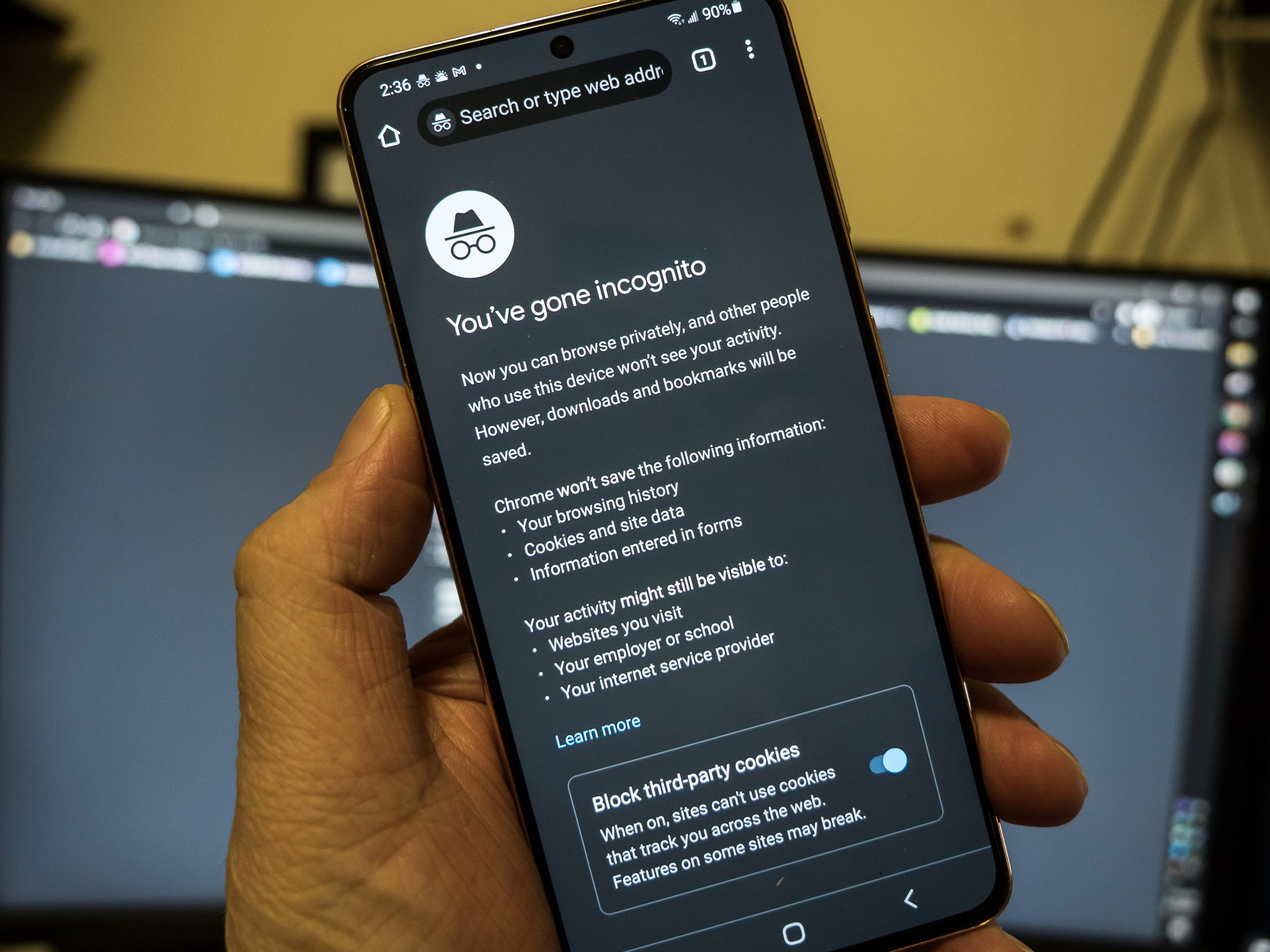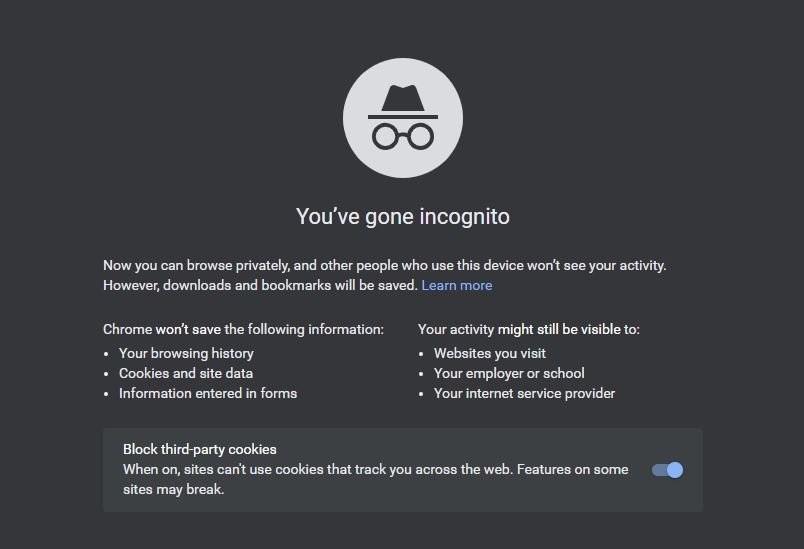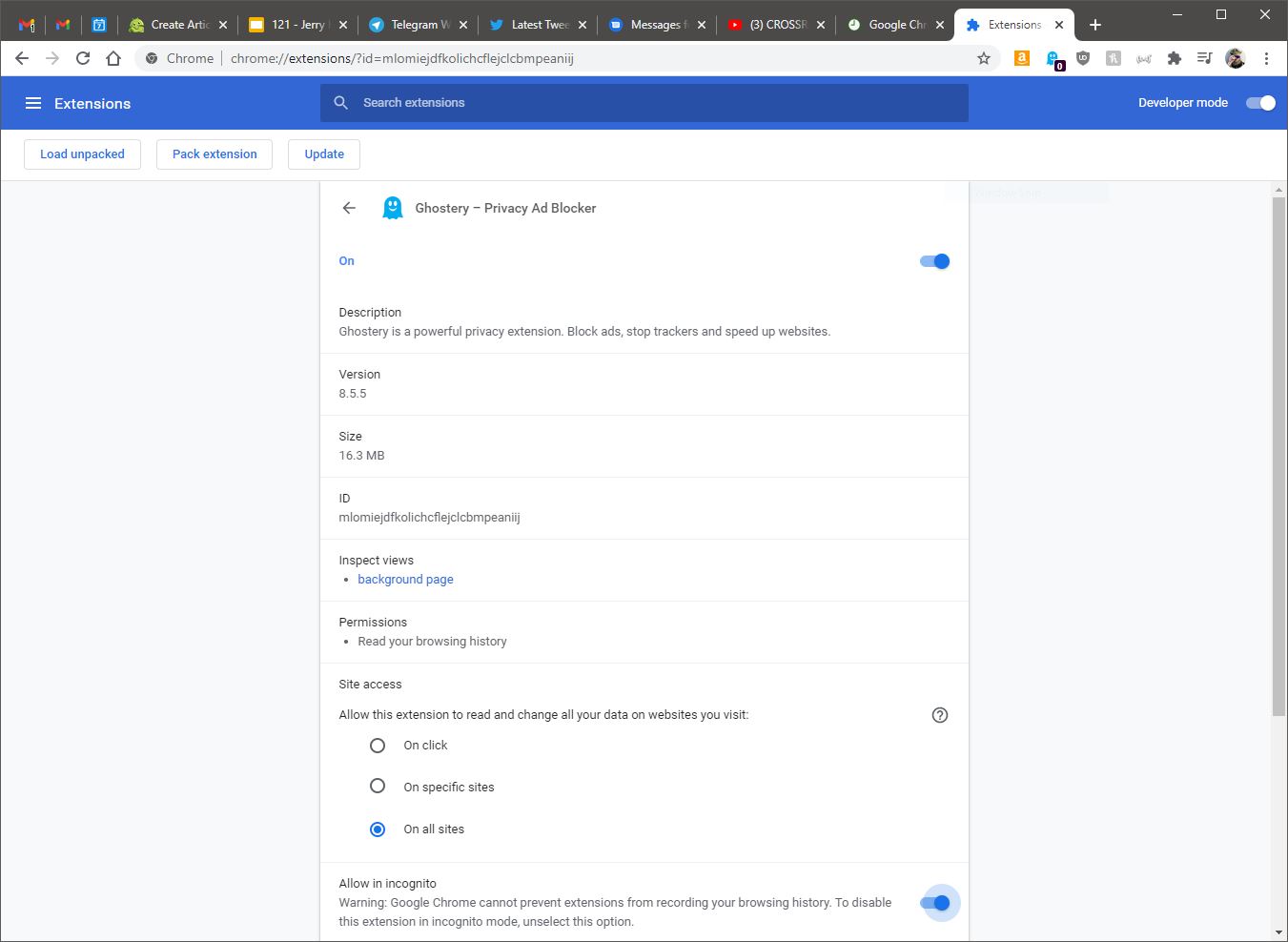Google tells you exactly what to expect when you open an incognito tab in Chrome, but that's just not enough.
A federal judge has denied Alphabet's (Google's parent company) request to dismiss a class-action lawsuit over Google's Chrome incognito mode, citing that the company "did not notify users that Google engages in the alleged data collection while the user is in private browsing mode."
Google products are secure, but that doesn't have anything to do with privacy.
There are plenty of things that may come to mind when hearing this ruling. Google never claims that incognito is private and even warns you that your web activity is still visible to any website on the internet, including ones that use Google's advertising services. But what matters right now is the opinion of an appointed federal judge.
Google, of course, disagrees and, in a written statement to Bloomberg says, "We strongly dispute these claims, and we will defend ourselves vigorously against them. Incognito mode in Chrome gives you the choice to browse the internet without your activity being saved to your browser or device. As we clearly state each time you open a new incognito tab, websites might be able to collect information about your browsing activity during your session."
There is no telling how the lawsuit will play out or if Google will end up paying a hefty fine. But this does point out one unequivocal message: When you're Google, you need to go the extra mile because consumers have been programmed not to trust you.
This is a big problem for Google, which has faced criticism at almost every decision for the past few years. It's also a problem the tech giant created for itself because of privacy overreach and stupid mistakes. It's difficult for most people to separate the "cool" Google stuff like the best Android phones from the much less cool and kind of creepy way Google tracks our web habits to sell ads. Google is working on a solution to the latter, though.
This wouldn't be the first time Google has found itself in hot water when it probably didn't actually deserve it. When you open an incognito tab or window on your phone or in the Chrome desktop browser, it doesn't open to the standard search landing page. Instead, it displays a bit of an explainer about what you should expect from the incognito mode browser.
Google doesn't explicitly state what we might think is obvious, and that's a problem.
But it doesn't explicitly state what I think is obvious — the only difference is that your web activity isn't saved locally. Everything else about the internet, including the bad things like tracking cookies or tracking single-pixel images, is still there, along with companies like Facebook, Amazon, **, and Google** tracking you through web ads. Just because it's obvious to me doesn't mean it's obvious to everyone, though.
You don't need to be a network engineer or have a CS degree to know how web tracking works, but it's not something the average consumer thinks about. That's who Google wants its products to appeal to, not just computer geeks or network nerds.
When the average consumer believes that incognito mode is some sort of completely private browser, they aren't very happy when they learn otherwise. In reality, like the incognito mode equivalent in Firefox, Microsoft Edge, and Apple's Safari browser, nothing is done to stop the web from tracking you, and Google is a very big player in the tracking game. A misunderstanding about how incognito mode works combined with frustration after finding out the facts is not great. When a company already in the spotlight over privacy concerns (a position in which Google always seems to find itself) is the perceived offender, things like class-action lawsuits happen.
But Google has brought this on itself. From real blunders like ignoring Do Not Track requests in the iOS version of Chrome to laughable issues like seeing open and unsecured Wi-Fi networks, Google has turned into the bad guy to a sizable portion of consumers. Part of the reputation is unearned, of course, because even benign things like having Street View vehicles photographing the landscape are things we've been told are bad. But Google also makes plenty of mistakes too.
The average consumer might not know how web tracking actually works.
This is where Google needs to face its past and be very clear about how its products actually work. The incognito mode warning is a prime example here. No matter how silly you might think Google getting sued about this is, it still wasn't written in clear language that leaves no question. This could have been avoided with a single sentence:
Incognito mode does not hide your web activity from advertisers who may track you, including Google.
Essentially that's what the existing warning means; it just says it without actually saying it. I can understand why Google doesn't want to remind users that it's tracking your activity, but transparency matters. Since most people have no idea that every advertisement they see on a web page is tracking the pages they go to next and where they came from, a simple and transparent warning would go a long way here.
The three users who have filed the suit claim that "Google collects browsing history and other web activity data even after users employ safeguards to protect their data such as using incognito private browsing mode," and that shows that there is a big misunderstanding about what incognito mode is. It's not private anything, nor is it any sort of safeguard against web activity tracking.
You can use privacy safeguards to fight against tracking while using incognito mode by installing Chrome extensions and allowing them access to incognito browsing, as seen in the picture above. But incognito mode only does one thing — it keeps pages you visit from appearing in your local Chrome history.
Normally this would seem like a cut and dried case that should have been dismissed. But because of our inherent mistrust of all things Google — whether earned or not — a judge is going to let the case go to trial. I think this is one that Google will win if it decides not just to settle and be done with the mess, but I know more transparency and simple language that everyone could understand would have prevented it from happening in the first place. A product manager or PR representative should have realized that Google wears a target around its neck and acted accordingly.
Source: androidcentral


